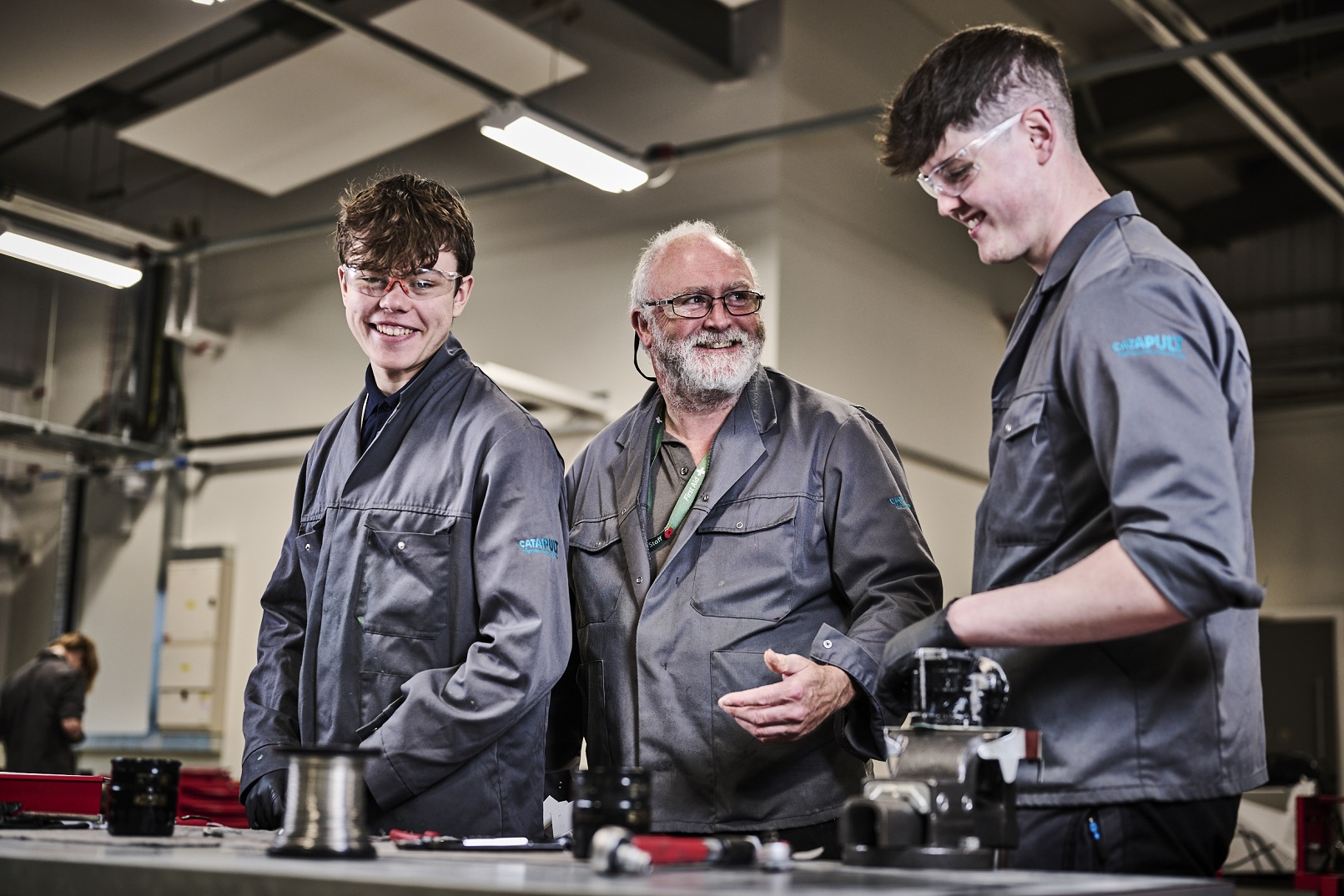Meet the Trainer: Dave Molan

Dave reached his long-term goal of training others when he joined Phase 1 of OAS five years ago. His longstanding career in MedTech and nuclear sectors gave him a wealth of technical knowledge and skills which he wanted to share with the next generation.
Now with half a decade of training under his belt, we caught up with him to see whether his goal is living up to expectation. We also asked him to share his advice with any prospective apprentices who are considering their career options or engineers looking to pass on their skills!
What was your prior industrial experience before you joined MTC Training?
I have always been a hands-on learner, so I started my career as an apprentice. I very quickly gained a liking for welding and started going to additional training in the evenings. While completing my apprenticeship, I gained lots of technical skills which set me up for a valuable career in engineering.
For years, I worked in the health sector as a welder producing pressure vessels in aluminium and stainless steel, at first for Oxford Magnet Technology which was then taken over by Siemens Medical. I then moved to LTI Metaltech Ltd, where we produced pressure vessels including ones for liquid helium contained in MRI body scanners.
Following this, I worked with Tokamak Energy shortly before being made redundant, which presented a great opportunity to becoming a trainer.
What would you say are your career highlights?
I have had many great experiences in my career, but a highlight would be getting the chance to be involved in welding a one-off spherical Tokamak (ST40) for Tokamak Energy. Fusion is really at the cutting-edge, and I’m really proud to have been part of a team moving the UK one step closer to achieving commercial fusion energy.
I was also a Company Welding Supervisor for a period, where I worked closely with authorities from TUV and Lloyds British, specialists in testing, inspection and certification of new technology, to ensure processes and procedures were set up and adhered to. Its so important in engineering to be aware of the risks and hazards. Being able to support one of the key fusion industry players, Tokamak Energy in the development of safe processes and procedures was very fulfilling.
Why did you decide to become a trainer?
Training others has always been a long-term goal for me and being made redundant provided a great opportunity to reach that goal. Even though it was by chance, I am so glad it happened.
It was initially my previous work history and experience that got me an interview at OAS Phase One, but it was the professional manner and passion to teach that got me the job. I was asked to set up and deliver a welding unit to first year apprentices and was supported to start my teacher training as soon as I arrived.
I have continued to undertake training opportunities where possible, obtaining both my Level 3 teacher training and my Level 4. I have also completed my assessor qualification and am currently working on my IQA qualification.
What do you enjoy most about your training role?
One thing I like about training apprentices is seeing their understanding from a task carried out in a workshop being relayed into written knowledge, so I know they have really understood what they have undertaken. I also like taking apprentices from a point where they have a fear of using or doing something to a point where they excel in it.
They’re going into such a vital area of employment, and without providing this base level of understanding of such a vast range of skills, knowledge, attitudes and behaviours, we’d be setting the new workforce up to fail. So, it’s all about embedding the right mentality and toolkit when going into engineering.
How is the MTC Training different from other training centres?
The facilities are second to none, the management are willing to train and support people to improve themselves and what they can do, and importantly, hard work is rewarded.
What makes a good apprentice?
A good apprentice is not always the cleverest, but one who is willing and keen to learn. This hard work will pay off and open-up opportunities to get involved in exciting projects you wouldn’t usually be able to.
What advice would you give to prospective apprentices?
Your prospective employer is making a commitment to you when they take you on. Have a real interest in what you are committing to for the next four years. The more you put in, the more you get out!
What advice would you give to any prospective trainers?
Come in with an open and flexible can-do approach and you’ll thoroughly enjoy it. Be willing to help out - it’s all about the teamwork!